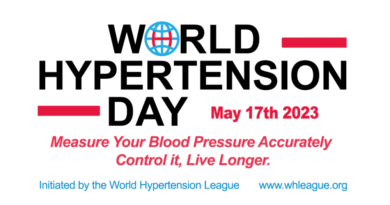Boosting Your Heart’s Natural Rhythm
Boosting Your Heart’s Natural Rhythm
Heart rate variability, often called HRV, is one of the most revealing signals of the body’s inner balance. It measures the slight changes in time between one heartbeat and the next. Though these shifts are small, they hold powerful clues about how healthy, resilient, and relaxed the body truly is.
A healthy heart does not beat with machine-like precision. Instead, it dances gently with life, adjusting its rhythm to whatever the body needs at that moment. This natural flexibility is what HRV captures. When the variation between heartbeats is high, it means the body can adapt well to stress, rest, and recovery. When the variation is low, it could suggest strain, fatigue, or even hidden health issues.
In recent years, HRV has moved from the lab into everyday life. Smartwatches, fitness trackers, and mobile apps now make it easy to monitor. People are using it to understand their energy levels, emotional state, and how their lifestyle affects recovery and sleep. The rise of this awareness shows how connected the heart is to every aspect of wellbeing.
A good HRV score often points to strong stress resilience, better mood, and sound sleep. Studies continue to show that HRV is linked to mental and physical health in profound ways. Research in 2025 revealed that people with consistently low HRV at night may face a higher risk of depression, while those with irregular patterns could be more likely to develop cardiovascular or metabolic problems in the future. These findings underline one message: paying attention to HRV helps prevent deeper health issues before they take hold.
Fortunately, improving HRV does not require drastic change. It is more about steady habits and self-care than perfection. Regular movement is one of the simplest ways to build a stronger rhythm. Gentle exercise such as walking, swimming, or cycling helps the body stay balanced. The key is consistency. Working out too hard can lower HRV temporarily, but moving regularly at a comfortable pace strengthens it over time.
Nutrition plays a quiet but vital role too. The heart responds well to a balanced diet rich in vegetables, fruits, whole grains, and lean proteins. Leafy greens like spinach and kale are especially beneficial because they support better circulation and energy use. Skipping meals or eating late at night can throw the body off balance, especially by disrupting sleep. And because even mild dehydration can lower HRV, drinking water throughout the day is one of the easiest ways to support the heart.
ALSO READ :Dr. Daniel and Pastor Shade Olukoya Celebrate 36 Years of Love
Sleep remains the anchor of good HRV. Getting seven to nine hours each night at consistent times trains the body to maintain natural rhythms. Sleep quality matters as much as quantity. Avoiding alcohol before bed helps because even one drink can reduce HRV for several nights. A calm bedtime routine, free from bright screens and late snacks, allows the heart to recover and prepare for the day ahead.
Breathing deeply is another powerful yet simple way to raise HRV. Slow breathing helps the body switch from “fight or flight” mode to a more restful state. A few minutes of deep, steady breathing each day strengthens the connection between the heart and brain. Mindfulness practices such as meditation or gratitude journaling also help the body unwind, reducing stress and improving focus.
Stress itself cannot be avoided, but it can be managed. The body thrives when given short pauses to reset. Taking regular breaks, stretching gently, or spending quiet moments outdoors all encourage calm. Yoga, nature walks, or listening to soothing music can relax the nervous system and gradually increase HRV.
Light and temperature also influence how the heart functions. Morning sunlight tells the body it is time to wake up, while evening light prepares it for rest. Brief cold exposure, such as a cool shower or a splash of cold water on the face, activates the vagus nerve, which plays an important role in heart rate control.
Tracking HRV each day helps turn data into understanding. A small drop might reveal fatigue, stress, or dehydration before you even notice it. Over time, patterns emerge that show how lifestyle choices affect recovery and mood. This awareness encourages better decisions, from sleeping earlier to taking a walk after a long day.
Improving HRV is not about chasing numbers on a screen. It is about learning to listen to what your body is saying. Every sip of water, every deep breath, every good night’s rest adds up. The heart thrives when treated with consistency and care.
By tuning in to HRV, you gain more than a measure of heart health. You discover a daily rhythm that reflects how balanced, rested, and ready for life you are. The goal is not perfection, but a steady, adaptable heart one that beats in harmony with your body, your mind, and the world around you.
Content Credit : Boluwatife Abiola
Image Credit : Google. Com




